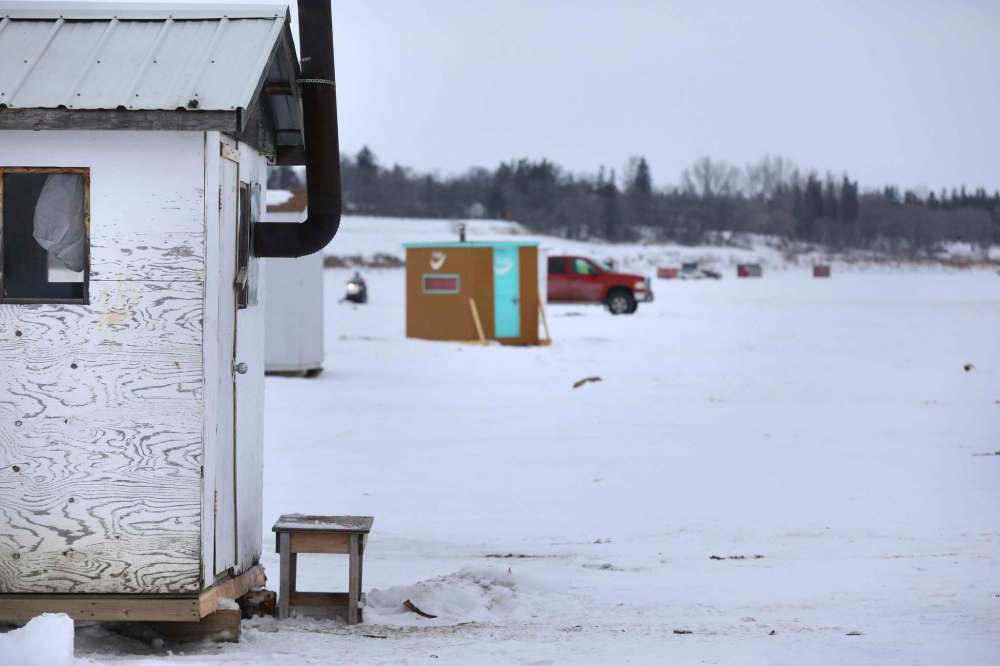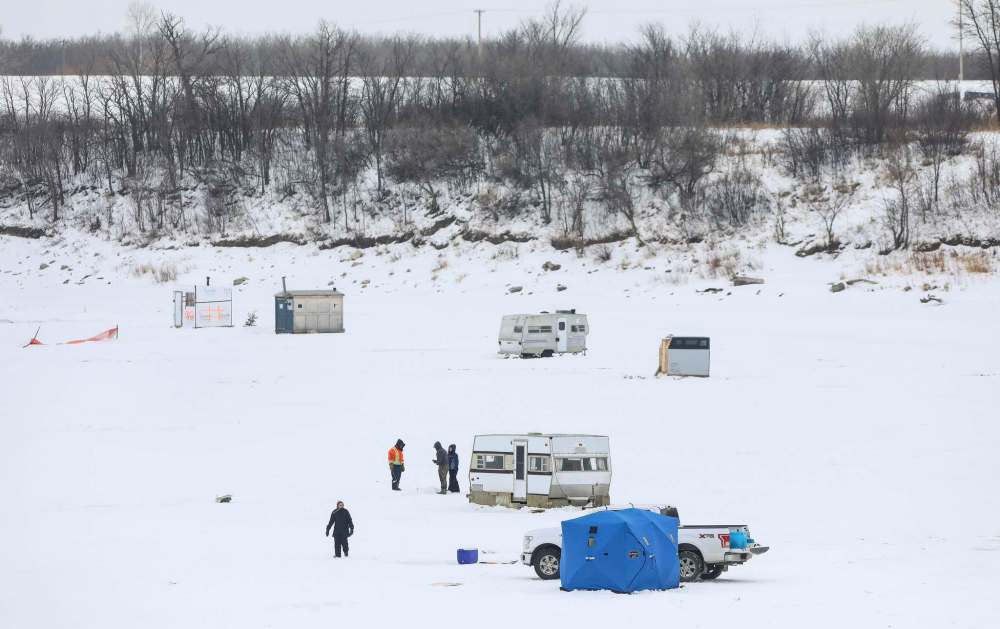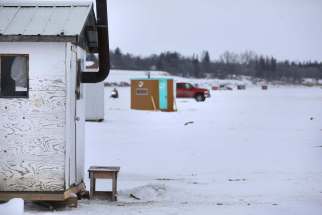Sudden popularity, extreme peril Guide saddened, but not surprised, after couple found dead in ice-fishing tent
Read this article for free:
or
Already have an account? Log in here »
To continue reading, please subscribe:
Monthly Digital Subscription
$0 for the first 4 weeks*
- Enjoy unlimited reading on winnipegfreepress.com
- Read the E-Edition, our digital replica newspaper
- Access News Break, our award-winning app
- Play interactive puzzles
*No charge for 4 weeks then price increases to the regular rate of $19.00 plus GST every four weeks. Offer available to new and qualified returning subscribers only. Cancel any time.
Monthly Digital Subscription
$4.75/week*
- Enjoy unlimited reading on winnipegfreepress.com
- Read the E-Edition, our digital replica newspaper
- Access News Break, our award-winning app
- Play interactive puzzles
*Billed as $19 plus GST every four weeks. Cancel any time.
To continue reading, please subscribe:
Add Free Press access to your Brandon Sun subscription for only an additional
$1 for the first 4 weeks*
*Your next subscription payment will increase by $1.00 and you will be charged $16.99 plus GST for four weeks. After four weeks, your payment will increase to $23.99 plus GST every four weeks.
Read unlimited articles for free today:
or
Already have an account? Log in here »
Hey there, time traveller!
This article was published 01/02/2021 (1780 days ago), so information in it may no longer be current.
Longtime fishing guide Donovan Pearase wasn’t surprised when he learned two people had been found dead inside an ice-fishing tent on the Red River on the weekend.
A 52-year-old man and a 52-year-old woman, both from Winnipeg, were taken to hospital and pronounced dead after being found unresponsive in the tent in the RM of St. Clements Saturday morning.
Pearase, owner of fishing guide service Blackwater Cats Outfitters, said ice fishing can become incredibly dangerous very quickly.

“If you ask if I’m surprised, I’m not,” he said. “I’m shocked at the tragedy, but I’m not surprised because there’s so many more people getting into it that are inexperienced, and it’s unfortunate that this happened.”
RCMP speculated carbon monoxide poisoning may have been a factor, adding autopsies will determine the cause of death.
Proper use of propane heaters is essential when ice fishing; tents often have vents to circulate air, but using permanent fishing shacks without keeping doors and windows open can be deadly, Pearase said. Most of the time, fishers are safe if they’re walking in and out of the tent or shack, or just fishing for the day, but sleeping can be dangerous.
“I personally, with all my experience, I’d be very, very scared to try and sleep overnight in a tent with a propane heater without the door propped open and windows propped open and a sensor,” he said.
Ice fishing has exploded in popularity, in part, because it’s an ideal socially distanced activity, and with that comes inexperience.
“If, all of a sudden, you had 100,000 people who never shot a gun before get into hunting and get out there and get their courses, people are going to get hurt because of the experience level,” he said.
Professional fishing guide Todd Longley said he knew the people who found the couple on Saturday and was told they did not have a carbon monoxide detector.
“All they needed was a $34 carbon monoxide detector, and if the levels got too high, it would’ve warned them,” he said. “And all they needed to do was crack open a window or zip open the door and walk outside and get some fresh air, and they would have been fine.”
Longley hears of inexperienced ice fishers getting themselves into trouble all the time, he said.
“People will drive out on the ice with cars and get stuck and they’re stranded out there until somebody can come get them, and some days it’s so cold out if their vehicle ever stalled and wasn’t able to start, they could freeze to death,” Longley said.

Some new ice fishers are disregarding important warnings, Pearase said.
“The number one safety issue is usually people going out in vehicles and not really knowing if the ice is safe themselves, not checking it, not really evaluating it. They’re just following people, and they might be following people who don’t know any better,” he said.
His advice to ice fishers, rookies and veterans alike, is always remain vigilant.
“The ice is never safe. It’s never 100 per cent safe,” he said. “You have to use your brain out there.”
malak.abas@freepress.mb.ca
Twitter: malakabas_

Our newsroom depends on a growing audience of readers to power our journalism. If you are not a paid reader, please consider becoming a subscriber.
Our newsroom depends on its audience of readers to power our journalism. Thank you for your support.










